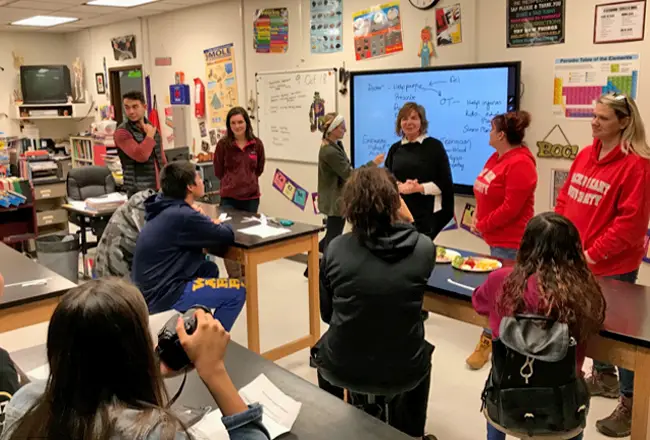
The Connecticut Technology Council will be celebrating its 25th anniversary in 2019, but without Bruce Carlson as president and CEO. Carlson ended his five-year run in the leadership role on Dec. 31. In his last interview as the head of the statewide trade association, Carlson spoke with Business Journal reporter Phil Hall on the strengths and challenges that face Connecticut”™s technology industry.
What is the overall state of today”™s Connecticut technology industry?
“Strong and getting stronger. My sense of it: the technology industry is going to continue to take Connecticut out of the economy doldrums that it”™s been in. In Fairfield County, you guys are doing great ”” Stamford had a strong base and you”™re getting a lot of reverse commuters. New Haven is absolutely one of the top biotech centers in the country. Across the board, we have this strong tech community and the companies are growing.”
What are the high-growth areas within this high-tech environment?
“It”™s regional. You”™ve got the fintech world of Stamford, the biotech world of New Haven. In Hartford, there is a big push on insuretech to connect with the insurance companies. And the Hartford Healthcare System is pushing for a health care IT accelerator. Software development and digital media are areas that people didn”™t know much about 10 years ago, but are now mainstays in the state of Connecticut.”
What about defense industry-related technology?
“Look at General Dynamics Electric Boat, Pratt & Whitney and Sikorsky. They”™re saying that between the three of them, they”™re going to be hiring something like 45,000 employees between now and 2030. A lot of that is replacement, because the industry worker base is aging in place and retiring. These guys are looking at contracts for subs and helicopters that are going out to 2050. The defense industry in Connecticut is really strong.”
Many business owners have raised grumbles or worse about the business environment within Connecticut. Has this been a complaint that you”™re dealing with?
“We have a proliferation of incubators and accelerators around the state. With that, you have a proliferation of new business startups. In 2017, there were the greatest number of business startups in the state of Connecticut that ever happened. You name the town and there is an incubator within walking distance in that town, whether it”™s Danbury or Stamford or Bridgeport. So, that is now in place and it is very helpful for getting businesses started.
“We do a lot of surveys to find out from our members what they care about. We don”™t hear the problems that get expounded by a CBIA about how you need to lower the taxes and lower the state spending. We hear from our companies that they need more workforces ”” taxes are maybe fourth or fifth on a list of what they need. I understand for certain industries in Connecticut and certain sized companies, running a company in Connecticut is challenging. But the companies we”™re focused on, the startup and scaleup companies, Connecticut is a good place and getting better.”
Where do Connecticut”™s colleges and universities fit into this picture?
“The schools in Connecticut have been a good place for technology to blossom. Yale and UConn are leaders with the research that they”™re doing and the spinning out of the companies they”™re involved in. Also, they are beginning to get more industry investment. Comcast has a huge investment in cybersecurity at UConn, so it”™s a two-way street for them.”
What is going to be on the Connecticut Technology Council”™s agenda for 2019?
“We”™re going to really push on the idea of technology that”™s on the edge. We”™re going to be doing through smaller events what I call Tech Talks ”” instead of TED Talks ”” where the opportunity to talk about how that technology is being integrated into this industry. The best example of that: blockchain is being actively looked at by the insurance companies, but it”™s not going to stop in the insurance industry. The next industry is probably the legal industry, where legal and real estate run into each other. I think being able to put on activities like that, which are very targeted and focused on the technology community to come and listen, is where the council is going.”
Looking back on your five years at the helm of the council, what were your most satisfying achievements?
“We have really shifted the council. When I took over, we were doing the big celebratory events. But as I got there and did a lot of discussions with people, I found that folks really wanted to have more information and more intense networking time with people. We”™ve gone to smaller events ”” we have more smaller events throughout the state ”” and we created a set of key strategies.
“When I took over, the board chair said to me, ”˜Why do we have a tech council?”™ The history of the tech council started as an advocacy agency for the fledgling IT industry back in 1994. Now, IT is interspersed into everything we do, so now is there a need for it? We shifted and we”™re technology agnostic ”” we have technology companies from all industry verticals in the state, but many of them have the same concerns ”” and that”™s what we developed our strategies around.”



















